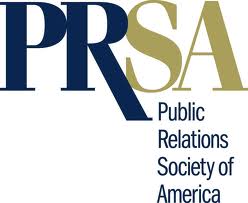 Today’s guest post is written by David C. Rickey, chair of the PRSA PR Defined Task Force, in response to Redefining Public Relations by Gini Dietrich.
Today’s guest post is written by David C. Rickey, chair of the PRSA PR Defined Task Force, in response to Redefining Public Relations by Gini Dietrich.
The discussion and debate around the Public Relations Society of America collaborative “Public Relations Defined” initiative, in which PRSA and 12 allied professional organizations have given public relations and other communications professionals a platform to shape a modern definition of public relations, has been robust, spirited and, perhaps most of all, strongly opinionated — all good things for the profession.
With the release of the three final candidate definitions for public voting, and with the winning definition to be adopted by PRSA, more strong opinions now are being expressed.
We certainly anticipated a diversity of opinions and our fair share of criticism, and public relations professionals never disappoint with their passion.
While the objections to the finished product are not overwhelming, there are certain themes of dissatisfaction we have noticed among detractors.
1. You hate them.
- “Sweet mother of confusing sh*t.”
- “They all ‘suck.’”
- “I’ll vote for #4 (none of the above).”
- “None of these even come close to hitting the mark.”
- “We did a better job on my blog.”
In response to these criticisms, we would simply respond: Of course it is; they do; you can; they don’t; and you did.
Nothing more clearly illustrates the reason why the profession hasn’t arrived at a “de facto” definition in more than a century of existence. If someone came up with a definition everyone loved at some point over the past 112 years, would we be having this conversation?
A cursory look at the individuals in PRSA leadership positions at the District, Chapter, and Sections levels shows only about 15 percent of them have the words “public relations” or “PR” in their title or company name, which also speaks to the difficulty of coming up with a single definition that describes the entirety of every role and function within the profession.
2. You can’t stand lingo and jargon.
We didn’t just make this stuff up. It was very important to the Task Force the definitions be true to the research, whether we liked it or not. A crowd-sourced approach seemed to be an appropriate methodology, given the affect social media is having on our profession, and the increased participation in their favorite brands and companies that people expect today.
Rather than PRSA dictating what its members saw as a modern definition, we wanted the profession’s contributions to drive the conversation and result.
The top 20 words which were included in definitions suggested by the professionals who participated in the effort were:
- Organization
- Public
- Communication
- Relationship(s)
- Stakeholders
- Create
- Mutual
- Understand
- Build
- Audiences
- Inform
- Management
- Brand
- Company
- Business
- People
- Engages
- Client
- Awareness
- Benefit
Jargon-y? Perhaps. But right or wrong, these are the words public relations professionals like you and me felt best described what it is we all do for a living. And while you may hate the word “publics,” would you have preferred “stakeholders?”
3. They won’t change the profession’s image.
That’s true. But this initiative was never about changing the profession’s image.
What will change public relations’ image, though, are some of the other outcomes PRSA is focused on achieving.
Things such as encouraging ethical conduct on the part of public relations professionals.
Creating a more diverse profession.
Developing measurement and evaluation techniques that are widely understood, accepted, and implemented.
Demonstrating the public good served by the profession.
And helping current and future business leaders understand and appreciate the vital role of reputation management in their marketing mix.
4. They aren’t particularly “modern.”
Many in the profession have suggested the definition of public relations didn’t need modernizing at all; that, the principles applied in the days of Bernays and Barnum still apply today.
Those folks should take comfort, then, that the three definitions resulting from the PRSA “Public Relations Defined” process are reminiscent of some of the most-well respected and widely adopted definitions of the profession that currently exist.
James E. Grunig, Ph.D., professor emeritus of public relations at the University of Maryland and author of 250 articles, books, chapters, papers, and reports, says,
Public relations is the management of communication between an organization and its publics. Its purpose is to cultivate relationships among organizations and publics.
And Scott Cutlip, Allen Center, and Glen Broom, in their seminal public relations text book, “Effective Public Relations,” state,
Public relations is the management function that establishes and maintains mutually beneficial relationships between an organization and the publics on whom its success or failure depends.
Regardless of what you think of the final candidate definitions, you can rest easy no one is forcing you to adopt the “winning” definition. PRSA will, and if you’d like to do the same, great; if not, that’s fine too.
Finally, let’s remember that we will be judged by our performance and our results, not by how we define ourselves.
David C. Rickey, APR, is PRSA secretary and the chair of its PR Defined Task Force.